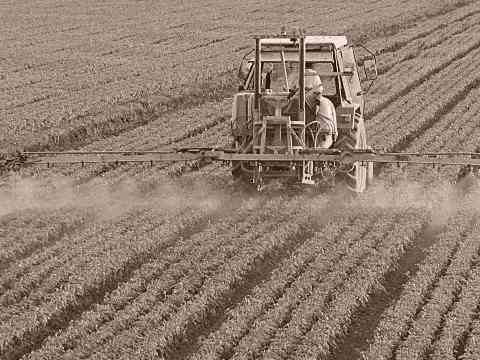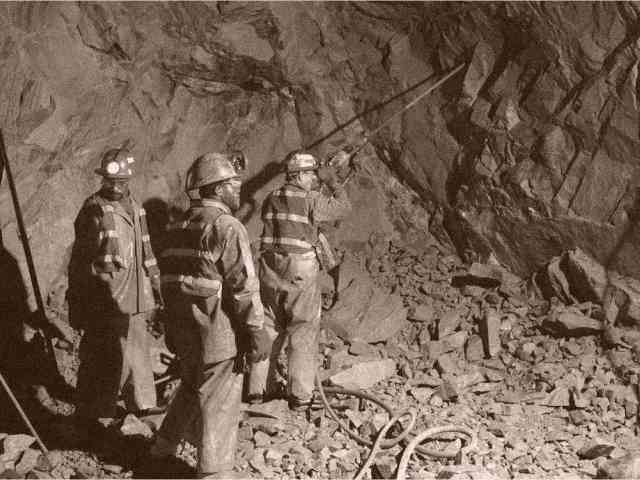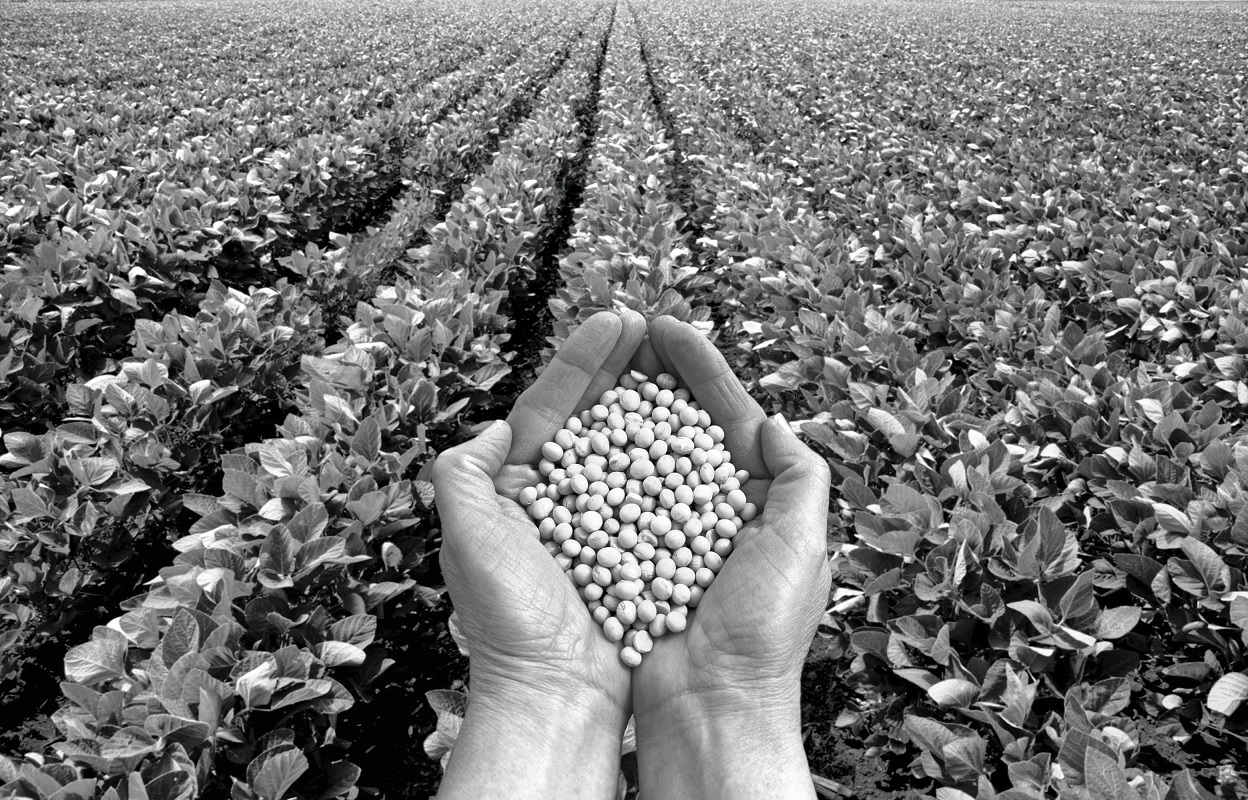
AGRICULTURE INVESTMENT NIGERIA
Nigeria provides incentives for investments that are competitive on a global scale and offers a set of enablers for agribusiness investors. The support measures include regulations, tax-free structures, competitive and low-cost labor force and investment incentives. Research shows that Nigeria has over 80 million hectares of arable land. This accounts for about 23% of arable land across all of West African sub-region. While oil may be Nigeria’s breadwinner, agriculture remains the most important component of the country’s economy.
Nigeria has highly skilled and efficient workforce. The labor cost is low especially when compared to American, Asian and European countries.
AGRICULTURE INVESTMENT NIGERIA CONTRIBUTION TO GDP
At the moment, agricultural sector contributes 47 per cent to the country’s Gross Domestic Product (GDP) and is responsible for 10 per cent of its export earnings. Foreign direct investment inflows are currently at $6.1 billion and the GDP is growing at a rate of 7.71 per cent, making Nigeria the fastest growing economy in Sub-Saharan Africa.
Nigeria is one of the world’s top producers of cash crops. The country’s agribusiness investment potentials exist in the following:
-
Crop farming and plantation development:
-
TREE CROPS: Oil palm, sugarcane, cocoa, cotton, rubber, coconut.
-
CEREALS: Rice, wheat, maize, millet.
-
ROOT CROPS: Cassava, yam, potato.
-
LEGUMES: Groundnuts, soya beans, beans.
-
FRUITS: Tomato, orange, mango, pineapple, guava, banana.
-
Food processing and preservation
-
Livestock and Fisheries production
TOTAL INVESTMENT UNDER THE ARGRICULTURE SECTOR
Major local and international investors are investing in Nigeria’s agriculture sector, with 5.6 billion USD in investments. The number of seed companies alone has risen from 5 to 80 within three years. The agricultural sector grew by 9.19% (year-on-year) in the third of 2014, up by 2.7% points from the third quarter of 2013. The agricultural sector grew by 38.53% between 3rd and 4th quarters of 2014, with crop production being the main driver, with a growth of 43.5%.
The Nigerian government has introduced various funding mechanism that will stimulate investments into the sector. The Nigerian Incentive-based Risk Sharing System for Agricultural Lending (NIRSAL) of the Central Bank of Nigeria (CBN) has reduced the risk in banks’ lending for farmers and reduced the lending rate to farmers. Banks are lending to agriculture today more than ever before. The share of lending to agriculture as a share of total bank lending expanded from about 2 per cent in 2011 to 5 per cent by 2013 and 9% in 2014.
Bank lending to seed companies and agro-input dealers expanded from $10 million in 2012 to $53 million in 2013 while bank lending to fertilizer companies expanded from $100 million in 2012 to $500 million by 2014.”
Others includes:
₦787 million World Bank intervention fund to farmers
₦50 billion mechanization support fund for agricultural equipment hiring enterprises;
₦14 billion for the expansion of 2014 dry season farming.;
₦10 billion rice processing fund
₦500 million fund for cotton farmers
RECENT AGRICULTURE INVESTMENT NIGERIA
A $5 Billion worth of investments in fertilizer manufacturing currently ongoing by Dangote Group, Indorama and Notore Chemicals.
-
Olam has invested $70 million in mechanized rice farm.
-
Dangote to invest $1 billion for large scale rice production
-
Teragro (a subsidiary of Transcorp Group) has established a $6 million plant to process oranges into concentrates.
OVERVIEW OF INCENTIVES IN THE AGRICULTURE SECTOR
Government has ambitious targets for the agriculture sector and the sector enjoys Pioneer Status with attendant tax exemption to all agro-allied companies. There are large investment incentives bagged by enabling laws and supported through the Ministry of Trade and Investments, Nigerian Investment Promotion Commission and the Ministry of Agriculture. For a complete list of the incentives, please visit
Some transnational agro-allied companies doing business in Nigeria include Flour Mills, Dangote, Nestle, UAC (Tiger Brands), Olam, PZ Wilmar, Transcorp.

SOLID MINERALS AND MINING NIGERIA
Nigeria offers proven potential for mining investors. The country is richly endowed with a variety of solid minerals of various categories ranging from precious metals to various precious stones and industrial minerals. About 40 different kinds of solid minerals and precious metals buried in Nigerian soil are waiting to be exploited.
SOURCE: Nigerian Extractive Industries and Transparency Initiative (NEITI)
Nigeria’s minerals and mining sector is still largely underdeveloped with abundance of mineral resources for development. These minerals can be broadly categorized according to use, into five groups:
INDUSTRIAL MINERALS (such as barite, kaolin, gypsum, feldspar, limestone)
ENERGY MINERALS (such as bitumen, lignite, uranium)
METALLIC ORE MINERALS (such as gold, cassiterite, columbite, iron ore, lead-zinc, copper)
CONSTRUCTION MINERALS (such as granite, gravel, laterite, sand)
PRECIOUS STONES (such as sapphire, tourmaline, emerald, topaz, amethyst, garnet, etc.)
PROVEN RESERVES IN THE SOLID MINERALS AND MINING SECTOR IN NIGERIA
These mineral assets are available across the federation in varying mixes and proven reserves. No corner of Nigeria today is lacking in solid mineral assets. It is significant to note that among the minerals which occur in significant commercial quantities in different parts of the country are Limestone – for which annual national demand is 18 million metric tons and which has driven the growth of Nigeria’s cement industry; Talc – Over 40 million metric tonnes of talc deposits have been identified; Gypsum – over a billion metric tonnes of gypsum are spread across the country; Bitumen – Nigeria has the second largest deposit of Bitumen in the world; Coal – there are over 1 trillion metric tons of coal resources on our soil. There are also significant quantities of several other minerals in Nigeria’s natural resource portfolio of at least 44 known mineral assets. Nigeria’s most promising mineral assets however are gold, iron ore, barite, bitumen, lead, zinc, tin, coal and limestone.
Ministry of Solid Minerals Development, Federal Republic of Nigeria
Nigeria has a large domestic market. It is the largest market in sub-Sahara Africa and the potential stretches into the growing West African sub-region. The government has created a favorable climate for business and industrial ventures. Government has reviewed its mining policies and laws. As a result, the government roles have been better defined as one of administrator–regulator while allowing the private sector to be owner–operator.
Nigerian Geological Survey Agency
POLICY TRUST IN SOLID MINERALS AND MINING SECTOR IN NIGERIA
The main objective of the National Policy on Solid Minerals is to ensure an orderly development of the mineral resources of the country by providing clear rules for predictable behavior by the authorities, unambiguous regulations for the exploitation of the minerals and a clearly prescribed pattern of developments with roles of the different actors clearly defined.
In view of the dwindling government revenue from the oil sector, the Nigerian government has made it a priority to encourage investors to venture into this sector and others, in order to diversify the economy. This has led to the introduction of the Nigerian Minerals and Mining Regulation 2011 to streamline procedures for granting licenses to investors (both local and foreign) and guaranteed access to mining sites with minimal encumbrances.
The regulation provided for the right to search for, or exploit minerals in Nigeria, and is obtained through any of the following mining titles:
-
Reconnaissance Permit
-
Exploration Licence
-
Small Scale Mining Licence
-
Mining Licence
-
Quarrying Licence
-
Water Policy
The sector’s legislation guarantees:
-
Security of tenure through mining lease
-
Transparent procedures for granting access to mining titles on a first come first serve basis by Federal Ministry of Solid Mineral Development
-
Internationally competitive mining incentives
-
Comprehensive Geoscience Data of mineral deposits and their locations in Nigeria
There are tremendous opportunities for investments in the solid mineral sector in Nigeria. Prospecting licenses for investors (both local and foreign) to participate in the exploitation of the vast mineral resources in Nigeria is granted by the Federal Ministry of Solid Minerals Development.
OVERVIEW OF INCENTIVES IN SOLID MINERALS AND MINING SECTOR IN NIGERIA
The Nigeria government has ambitious targets for the solid minerals and mining sector and the sector enjoys Pioneer Status with attendant tax exemption to all operating companies. There are large investment incentives bagged by enabling laws and supported through the Ministry of Trade and Investments, Nigerian Investment Promotion Commission and the Ministry of Solid Minerals Development. For a complete list of the incentives, please visit
Some transnational mining companies doing business in Nigeria include Dangote, BUA, Lafarge, Megatech, Aquagem, Helicon.
NIGERIAN INVESTMENT PROMOTION CENTER

Nigeria provides incentives for investments that are competitive on a global scale and offers enablers for agribusiness investors.
PIONEER STATUS AND TAX CREDITS
All businesses in agro-allied, manufacturing and mining sectors enjoy Pioneer Status in Nigeria. Pioneer status is a tax holiday granted to industries anywhere in the Federation and five to seven (5-7) year tax holiday in respect of industries located in economically disadvantaged local government area of the Federation.
The grant of Pioneer Status to an industry is aimed at enabling the industry concerned to make a reasonable level of profit within its formative years.
The amount of capital allowance to be enjoyed in any year of assessment is restricted in Nigeria to 75% of assessable profit in case of manufacturing companies and 66% in case of others, except such companies in agro-allied industries that are not affected by this restriction. If leased assets are used in agro-allied ventures, the full (100%) capital allowance claimed will be granted. Moreover, where the leased assets are agricultural plants and equipment, there will be an additional investment allowance of 10% on such expenditure.
Leverage the benefits of doing business in Nigeria
Discover the opportunities
Discover all that Nigeria has to offer



